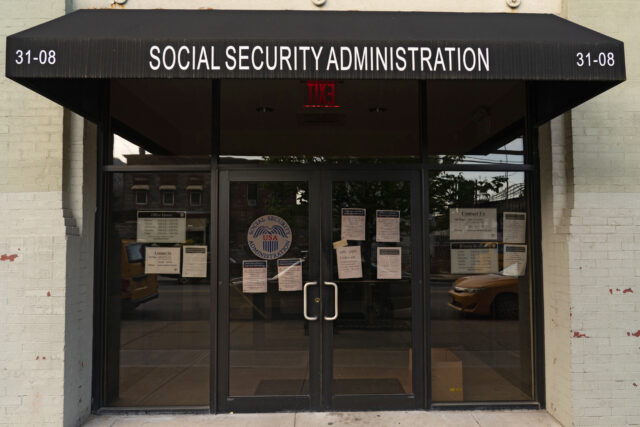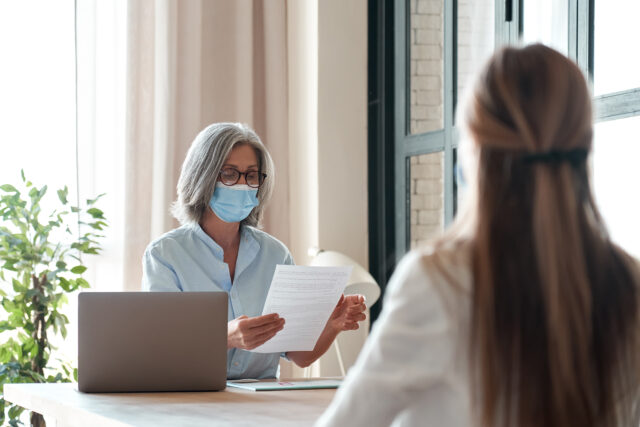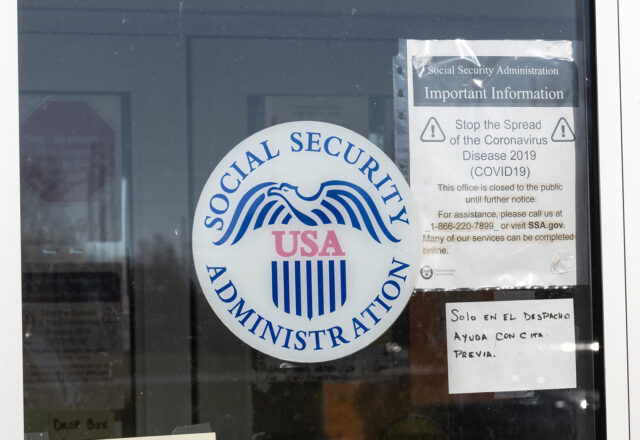
Privilege in the Age of the Coronavirus
I appreciate how privileged my husband and I are that we are able to remain in our home, where we feel fairly safe.
He is a retired Boston high school teacher. I have a good job that also provides me with some degree of flexibility when needed, and my boss didn’t resist, because of my autoimmune condition, when I asked to work at home early last week.
A young couple in my condo building with a new baby fled last weekend to a relative’s house in rural Connecticut, where the husband will be able to telecommute to his high-paying job in Boston.
Yes, our 401(k)s are getting pummeled. But this national crisis is immediate and far more consequential for the millions of Americans who must work even in a pandemic. Workers have two concerns, and they are intertwined: health and money.
Think about the first responders, service-industry workers, or post office employees who are in contact with the public, constantly exposing themselves and, as a result, their families to the coronavirus.
Low-income people are also very vulnerable. Research shows that they are less healthy for reasons ranging from less access to employer health insurance to higher rates of smoking and obesity. Diabetes is more pervasive in low-income populations too.
Yet public health officials tell us that people with underlying conditions are far more vulnerable to getting seriously ill if they contract the virus – and these are the same people who usually don’t have the luxury to telecommute. Many low-income workers also live in crowded conditions, often with older relatives in fragile health.
Many workers are grappling with the realization that the economy is starting to slow down – and they will be the first to feel it. Consider the cleaning ladies or dog walkers whose clients are asking them not to come to the house this week or the servers at the restaurants shutting down in Manhattan, Massachusetts, Illinois, and across the nation. As public schools close around the country, who will take care of the children of parents who must work?
Many of us have family or friends in trying situations. My brother and sister-in-law who live in a Chicago suburb are solidly middle-class – but that status depends entirely on my sister-in-law’s income as a waitress at a high-end restaurant. They are a typical two-income couple who struggle, even in good times, to cover the mortgage and their share of the student loan payments they agreed to take on so their kids could go to college.
I am not wealthy. But, rather than retreat into safety, I’m wondering about the small ways my husband and I can reach out and help people who are not so lucky. First and foremost, be there for our family. Pay the cleaning lady not to clean. Give some money to a food pantry trying to feed low-income kids – kids like my husband’s former students – now that the Boston schools have shut down. Leave some groceries on the shelves for people who have to work and can’t get to the store until this evening.
We’re all in this together. Stay safe and also help keep others safe.
Read more blog posts in our ongoing coverage of COVID-19.
Squared Away writer Kim Blanton invites you to follow us on Twitter @SquaredAwayBC. To stay current on our blog, please join our free email list. You’ll receive just one email each week – with links to the two new posts for that week – when you sign up here. This blog is supported by the Center for Retirement Research at Boston College.
Comments are closed.







Well said!!!
Also, buy gift cards from your local small businesses to keep some cash in their till. You can use them later when things calm down.
Please find a way to start donating materials, pushing your corporations for their stockpiles or even sewing masks for our frontline healthcare workers in your community. We are in urgent need in many places for masks as many health workers are already or will soon be sick and then there won’t be enough staff to care for the sick regardless of income or status. Please respond and act. This is already the case in many states. Sincerely, Chaplain Terry
Thanks for your post. I, too, feel lucky to have built up a sizeable emergency fund to cover this emergency. My family of 4 will be more than OK over the next few months. We are a one income household but my furlough starts today with no end in sight until this state of emergency gets lifted. I work as a self-employed nurse anesthetist who mostly works in “non-essential elective procedures.”
My privileged status gives me an opportunity to spend a little more time with my young children and help my wife around the house. Outside my family, I have reached out to friends and family to simply ask how they’re doing and maybe offer help if warranted.
Now is the time for us to come together as one community and to share where we can.
Stay well.
Stay safe.
Take a look at this:
https://vimeo.com/397446368/10cc8f43e6
Kim, I like what you wrote. I see it where I live and experience it in many of the same ways. It is a privilege to even have the time to see it that way.
I’m graduating from nursing school soon. My very last clinical (last 6 weeks) was canceled by someone else, not my school. All the nursing schools in my state are communicating with government regulators and private accreditors to get us graduated and working.
I watch the news aware it is a privilege to live here and help out any way I can.
Kate
BC alum
What a great commentary. Being a little more cognizant of what is going on around can impact kindness a bunch. Thanks!
Well said!
Its very difficult to find this type of
Informative article, and am very glad that I came across this article.
Good work guys!